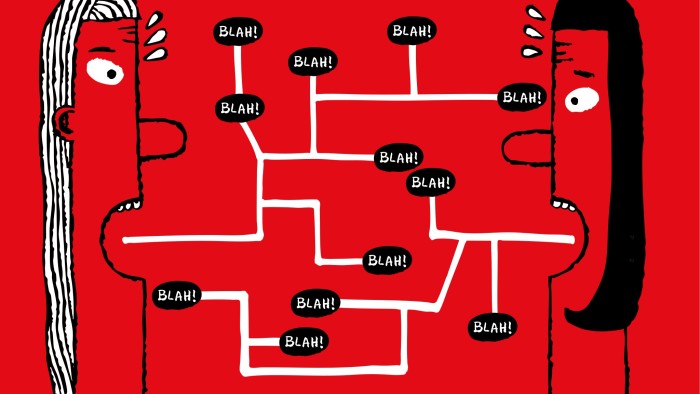Unlock the Editor’s Digest for free
Roula Khalaf, Editor of the FT, selects her favourite stories in this weekly newsletter.
Soon, Amazon’s white-collar workers will turn a new chapter: travelling to the office five days a week. Don’t worry. I’m not about to rehash the debate over potential productivity losses or gains of mandated returns. Nor will I dwell on the online retailer’s disgruntled staff who are reportedly “rage-applying” to jobs elsewhere — possibly playing into management’s desire to trim its workforce.
Rather, the point of raising Amazon’s policy for 2025 is to highlight the enduring interest in the office. Did I think in March 2020, when the world went into lockdown and white-collar workers marvelled at the novelty of being moved en masse to their bedrooms, we would still be talking about it almost five years later? I did not. Every time a boss issues a new edict demanding staff come in, my heart sinks because it will reignite the discussion about the office’s merits. Readers comment, telling each other that it is brilliant or disastrous. Politicians, business leaders and commentators get stuck in too.
I’ve been struck by how frequently the subject came up over the festive season. So much discussion over a place where people eat sandwiches al desko, (or a steak if you’re Kemi Badenoch, leader of the UK’s Conservative party), type on laptops and watch PowerPoint presentations.
Now, however, I’ve come to see office chat as a gift rather than a time suck. It allows white-collar workers to discuss their nine-to-five life in a way that would be intelligible to someone outside their field. When friends I’ve known for decades post on LinkedIn, I’m struck not just by how sensible and coherent they seem — quite different to the person I knew growing up. But also that I’m not entirely sure what exactly it is they do.
The inscrutability of white-collar roles was exemplified by the fictional Chandler Bing, played by the late Matthew Perry, in the US sitcom Friends. When challenged in a game to name his job, Monica says: “Something to do with numbers, and processing.” “He carries a briefcase,” Rachel guesses, before landing on “a transponster”. Not even a word, let alone a job. That finished two decades ago. I suspect inscrutability has only increased since.
Could AI intensify that trend? Perhaps, if workers are unshackled by technology and encouraged to burrow deeper down the rabbit hole of their own expertise.
Jargon only adds to the obfuscation. As advertising supremo David Ogilvy once said: “Our business is infested with idiots who try to impress by using pretentious jargon.” A sentiment supported by a study finding that the insecure were more likely to “use jargon in their communication and conversations”.
With all this complexity and corporatese it is little wonder we talk about time in the office when trying to find common ground. Oh, I know people will say work is boring, our jobs shouldn’t define us, that we shouldn’t devote any more time to it than the hours we’re paid for, and instead find other topics to discuss, such as literature, hobbies, or political turmoil elsewhere in the world.
But it seems a shame to entirely avoid something that demands so much of our time. In her forthcoming book, Talk: The Science of Conversation and the Art of Being Ourselves, Alison Wood Brooks describes that when she became a professor at Harvard Business School, teaching a course on negotiation, she discovered that “so-called ‘difficult conversations’ . . . weren’t the only interactions tripping people up. People struggle with seemingly easy conversations too.” While we are conditioned to think of small talk as dull, her view is that it is worth persevering with as it can be a “stepping stone towards bigger, better, more interesting conversations”. Or as the Atlantic columnist James Parker said, it has the capacity to “tip you headfirst into the blazing void” of another’s soul.
Maybe that’s how to see talk of the office? An icebreaker that allows people to discuss unintelligible work in a way that isn’t bragging about successes and may take you in unanticipated directions. Yes, it’s the place where your co-worker drives you up the wall with their loud breathing, or their petty insistence on using their favourite mug. But it’s also about autonomy versus control, professional dramas, thwarted and realised dreams and workplace friction.
What do we talk about when we talk about the office? A lot more than shared desks and cubicles.
Read the full article here

